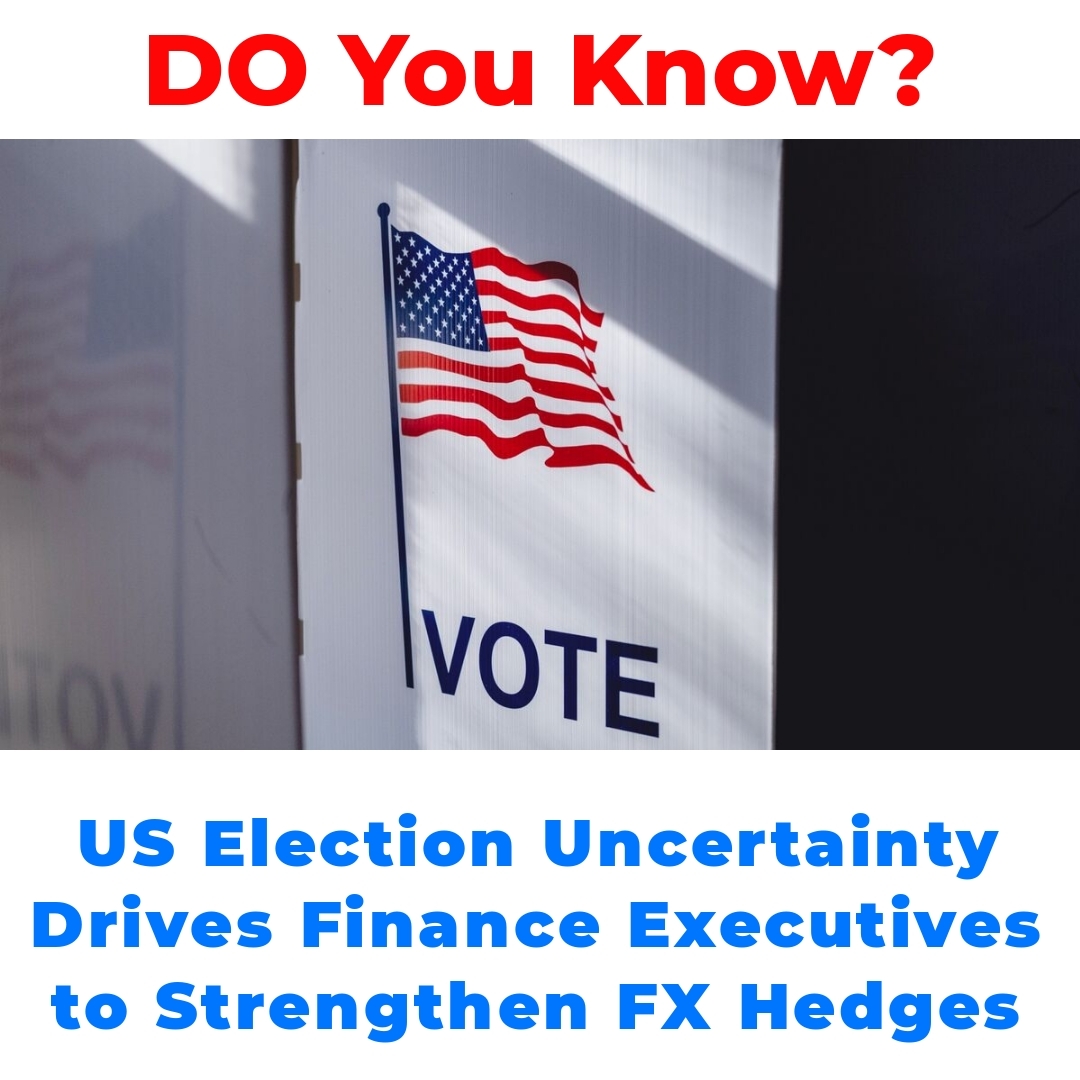The US presidential election holds significant implications for global currency markets, introducing a wave of political uncertainty as polling day approaches. For finance executives, understanding these dynamics is crucial, as they prepare to navigate fluctuating exchange rates and implement foreign-exchange hedges to mitigate potential risks associated with the election outcomes.


Understanding the US Presidential Election’s Role in Financial Strategy
The US presidential election has always played a pivotal role in shaping investor confidence, and this year is no exception. As finance executives, understanding how elections impact currency markets is critical. Historically, we’ve seen elections stir up significant fluctuations in exchange rates. For instance, during the 2016 election, the dollar experienced notable volatility, reflecting the uncertainty around the election outcome. As we head towards polling day, the climate of political uncertainty is palpable, and it’s vital for those in finance to stay informed and proactive.
Investors are closely watching not just the candidates, but also the potential economic policies that may follow the election. This expectation influences trading behaviors, making it essential for finance teams to analyze both historical trends and current market sentiments. The upcoming election is likely to affect overall market dynamics, impacting decisions around investments and foreign-exchange hedges.
The Current State of Currency Markets
As we assess the current state of currency markets, it’s clear that electoral politics have stirred things up. Recently, observers have noticed fluctuations influenced by pre-election sentiments among investors. Currencies are responding to news cycles, debates, and even polling updates, making it a rollercoaster for anyone involved in trading.
Finance executives are on their toes, monitoring these changes. Understanding how these shifts correlate with public sentiment is essential for making informed decisions. With polling day fast approaching, managers need to keep a close eye on the currency markets as they navigate the stormy waters of political uncertainty.
How Finance Executives Can Prepare for Political Uncertainty
So, how can finance executives prepare for this political uncertainty? One of the key tools in their toolkit is the concept of foreign-exchange hedges. These hedges are critical during elections as they protect against adverse movements in currency values. By employing various techniques, finance teams can effectively mitigate risks associated with fluctuating exchange rates.
Common methods include options trading, forward contracts, and currency swaps. Each of these techniques allows companies to lock in exchange rates and protect their bottom line, regardless of the election’s outcome. Historical examples show that companies that employed robust risk management strategies in past election cycles managed to navigate economic uncertainties more successfully than their competitors.
Strategies for Hedging Against Foreign-Exchange Risk During Elections
There are specific strategies finance executives can adopt to hedge against foreign-exchange risk during this election cycle. Firstly, they should assess their exposure to currency fluctuations by analyzing their international operations. With a clear understanding of their risk profile, they can implement proactive investment strategies tailored to minimize losses.
Another effective strategy includes using a combination of derivatives, such as forwards and options, to create a balanced hedge. This diversified approach can help manage potential losses effectively. Moreover, case studies highlight how smart hedging practices allowed companies in previous election years to maintain financial stability despite the tumultuous market conditions.
The Future: What to Expect Post-Election
Looking ahead, one can’t help but speculate on the long-term effects of the US presidential election on currency markets. Historically, the election outcome has shown to shift market dynamics considerably. A win by one candidate could lead to a stronger dollar, while a victory for another could weaken it, reshaping investor behavior instantly.
This post-election volatility emphasizes the importance for finance executives to remain adaptable in their risk management strategies. Continuous monitoring and adjusting of these strategies post-election will be crucial, as markets could react differently than anticipated. As the dust settles, a clear understanding of the electoral outcomes and their implications will become essential for financial planning.
Conclusion
In summary, the US presidential election has significant implications for financial planning, especially for those in the finance sector. Executives must recognize that foreign-exchange hedges are a vital tool in navigating the uncertain waters of electoral politics. With the unique challenges that arise during these times, remaining vigilant and adaptable in investment strategies is essential.
We encourage finance executives and companies to share their experiences with foreign-exchange hedges during elections. Staying informed and prepared for the volatility surrounding the upcoming US presidential election is crucial for effective strategic planning.
FAQ
How do US presidential elections impact currency markets?
US presidential elections create significant fluctuations in currency values due to investor uncertainty regarding economic policies. For example, during the 2016 election, the dollar saw notable volatility.
What strategies can finance executives use to manage currency risk during elections?
Finance executives can use foreign-exchange hedges, including:
- Options trading
- Forward contracts
- Currency swaps
These strategies help lock in exchange rates, shielding companies from adverse currency movements.
What should executives consider when assessing exposure to currency fluctuations?
Executives should analyze their international operations and determine their risk profile related to currency fluctuations to implement effective investment strategies.
How can a diversified approach to hedging be beneficial?
A diversified hedging strategy, which combines different derivatives like forwards and options, can help manage potential losses more effectively during volatile election periods.
What role does investor sentiment play in currency market fluctuations during elections?
Investor sentiment can significantly influence currency values, as markets react to news, debates, and polling updates leading up to the election.
What can finance executives expect post-election regarding currency markets?
Post-election, market dynamics may shift dramatically based on the outcome. A victory for one candidate could strengthen the dollar, while another could weaken it, making adaptability in risk management crucial.
How do foreign-exchange hedges contribute to financial stability during election years?
Companies that implement robust foreign-exchange risk management strategies often experience greater financial stability and can navigate uncertainties more successfully.






